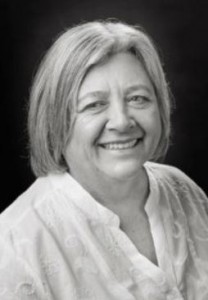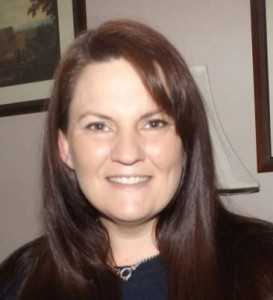Autism, pregnancy and motherhood: special report says women overcome 'systemic abuse' to become great mums
Posted on
Amaze’s most recent polling shows that 52% of Australians have a personal connection with autism.
Concerning, however, is that 70% of those polled did not know that the number of autistic females is increasing.
Amaze recognises that understanding and acknowledgement of autistic women and the specific nature of their autism needs far greater exposure.
At the 2017 Asia Pacific Autism Conference (APAC), renowned autism advocates Monique Blakemore and Geraldine Robertson offered deep insight into the experience of autistic women and motherhood.
Following are observations they made at APAC.
Geraldine:
“What is known about families where the mother is autistic and is parenting one or more autistic children?
And how does the non-autistic world impact on their health? Can they access services without fear or judgement?
Are health care providers equipped to provide the same level of care as for their non-autistic peers? And are autistic mothers consulted about the adjustments they require? How do non-binary expressions of gender affect the mother?
Nobody knows the answers to them (questions), but motherhood for all of us has complex cultural expectations and the challenge of dealing with these for an autistic mother can lead to distress and mental health conditions.
I want to talk about the hurdle of diagnosis. The autistic mother myth and the masking that we do to fit in really affects our capacity to get a referral or diagnosis in the first place.
They (perhaps) go through the mental health system and maybe through comorbidities, even clashes with the law, before later in life they get a diagnosis. It has a huge impact on the outcomes they experience.
It also stops people from tapping into their strengths as parents. Autistic characteristics can really bring some positive aspects to parenting. The need for structure and routine, and planning are really reassuring for children.
We enjoy sensory safe environments and incorporate our passions blissfully into home living and that … can be very positive.
Our personal experience of systemic abuse leads us to become very fierce and passionate advocates and we are there to defend, especially the most vulnerable in our families.
I also want to talk about motherhood and pregnancy because autism had a profound effect on that.
I will talk about my experience. I did a lot of reading, almost like my own social story of pregnancy and birth and then when I experienced contractions I experienced pain. I can’t locate it (pain). I experience it but I don’t know where it’s coming from. The books didn’t talk about that.
Then I got to the hospital. The lights, the smells, the noises, were adding to those layers of stress.
I was there a long time and after 20 hours the nurse came in and said, ‘Are you still here?’
I interpreted that literally, that on a very busy night, I was being slow and taking up a bed that somebody else needed. I didn’t know it was just conversation and they said that to everybody.
I was so stressed I couldn’t speak any more. And when people touch me, especially when I am stressed, I experience that as severe pain.
So when they were coming close to do intimate examinations I was cringing.
It was adding layers and layers of stress on a stressful experience.”
Monique:
“In the UK I was asked to provide some information to the government on the needs of autistic women … and 100 British women told me they needed to feel more empowered about the birthing day.
Factors of success were clear communication … the literal interpretation of instructions.
A mum may ask a lot of questions, it’s her way of seeking certainty. She may be feeling anxious or fearful.
She can be met with eye rolls, or deep sighs, where longer appointments, clearer information, and empathy are needed.
When overwhelmed a woman can shut down. She needs time to process. Silence is not consent.
Birth plans need to have a ‘when things change’ (category). Rarely is there an absolute when it comes to bringing new life into this world.
Women (in the research) said they felt the wards were overwhelming and they didn’t know where to locate what they needed.
They also didn’t know who to ask for help, and when help wasn’t given it would escalate their concerns.
Single rooms can be a necessity. They can be the difference between a woman staying in hospital to get the help she needs, or an early checkout.
Wards and birth have many sensory triggers. Staff have to be aware sensory processing can impact at all stages of care.
Family support may be needed, and not just in visiting hours. We need access to family. That can make the world of difference.
I know that personally because I did three births, caesarians. Two days after a caesarian I couldn’t cope, (went) back home. It wasn’t good.
Women asked (in the research) that staff trust their autistic instincts.
Key results found mums were likely to feel misunderstood by professionals, they were unsure which details were appropriate to share with professionals.
Mums can feel unable to turn to others for support in their parenting and I think it’s a crucial part of the NDIS (National Disability Insurance Scheme) that there is some development of support networks for autistic parents because they worry others are judging their parenting.
She (autistic mother) can be thought of as aggressive and ‘shouty’, when actually she is struggling to regulate her tone of voice.
Another non-autistic projection is in the maternal bond _ judging our connection to our children.
I know with my son, if he falls over, I want to go and grab him in a great big hug. It’s the worst thing I can do for him because he has to have time. The cuddles come later, but you can be judged as uncaring when the kindest thing you can do is give them space to process.
We can also be accused of fabricating illness or being overly focused on disability. We are researchers and we are questioning because we need answers … we are seeking certainty.
One of the hardest things as a mum is to be asked ‘what do you need’. How can I answer that when I don’t know what you can give me.
If I’ve never experienced help and support, I can’t imagine what that would be so I need help in understanding what I can access.
Executive functioning impacts on motherhood. Autistic women find they’re presumed incompetent by the professionals who are meant to assess and support their parenting without bias. Women can experience an invisibility bias _ the more verbal we are, the less disabled we seem.
When an under-supported mother uses her energy as masking to appear to be normal, it leads to her being vulnerable and her needs being misunderstood or ignored by professionals.
Assessors have to understand how executive functioning impacts (on parenting), that it’s a cognitive challenge. It’s not neglect and it’s certainly not laziness.
We have an explosion of professionals misunderstanding us, the way we communicate and the way we process information.
It has led to allegations raining down on our community of fabricating illness, which used to be called Munchausen by proxy. Other labels get used, too, like attachment disorders.
Autistic women are investigated for alleged fabrication of their children’s autism.”
Geraldine:
“When people are talking to autistic mothers about systems, it’s really helpful to provide them with a flow chart that shows them a process so they can track their way through the complexities of the system.
It (chart) shows them who they dealing with, what their responsibilities are, what they can do to help, and what they can’t do, so the mother can keep track of what’s going on.
It helps clarify and simplify communication.
We can dispel the myth that autistic people can’t be good mothers because like all mothers, autistic mothers have socially connected with people like themselves who are valued for their strengths, are supported in times of crisis, and are good parents.
The key wording is ‘like all mothers’. Society has those structures. We need to be cued into them.
About Monique and Geraldine:
Monique Blakemore is an autistic rights campaigner and advocate. She is the founder of Autism Women Matter and has spoken at the United Nations, World Human Rights Forum and has a special interest in autistic women and their empowerment through policy making.
Geraldine Robertson is an active advocate and board member for the following organisations: Autistic Self Advocacy Network for Australia and New Zealand, Autism Tasmania, Tasmanian Autism Advisory Panel and a representative for the Australian Autism Alliance.
In October-November, the Human Rights Committee at the United Nations will review Australia. It’s expected that concluding observations will include recommendations on how to improve human rights in the Australian context.
Geraldine has been elected as the advocate to represent the needs of autistic Australians.



